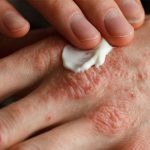Sleep is crucial for allowing your body to rest and recharge, both physically and mentally. However, individuals with polycystic ovary syndrome (PCOS) often struggle to achieve quality sleep. PCOS results in hormonal imbalances, including an overproduction of androgens and a reduction in hormones like progesterone, leading to symptoms such as cyst growth on the ovaries, irregular periods, infertility, obesity, acne, and excessive hair growth.
Many are unaware of the connection between PCOS and sleep issues. Research indicates that individuals with PCOS have a higher prevalence of sleep disturbances, including sleep apnea, insomnia, and fatigue. These sleep issues are worsened by other health conditions associated with PCOS, like obesity and depression.
The hormonal imbalances caused by PCOS can impact sleep quality. Low levels of estrogen and progesterone can affect the brain’s ability to regulate sleep, leading to symptoms of insomnia, frequent awakenings, and a heightened risk of obstructive sleep apnea. These sleep disturbances can result in daytime symptoms such as excessive sleepiness, cognitive issues, fatigue, and headaches.
Improving sleep quality with PCOS involves managing stress levels, establishing good sleep hygiene practices, getting tested for sleep apnea, addressing metabolic factors through lifestyle changes, and considering medical treatment options like hormonal therapies. It’s important to consult a healthcare provider if sleep disturbances persist, as early intervention can prevent complications and enhance overall well-being.





